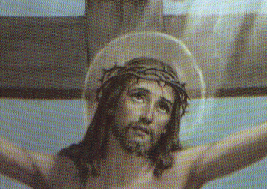
"Let you the petty..."
In Jesus times, the children have a little important social status, in the greek-roman society, because they are judged like "raw material to form" and educate (Enrico Paschetto, Ges¨ e i fanciulli, in Storia di Ges¨, vol. 4, ed. Rizzoli, pag. 1177).
Among the people of Israel, the children live a better social situation than the greek-roman society. But also in Israel, the children don't have a particular importance: Israel people don't idealize them and don't recognize, them, particular attention (Cfr. Enrico Paschetto, Ges¨ e i fanciulli, in Storia di Ges¨, vol. 4, ed. Rizzoli, pag. 1178). In fact, the greek- roman world and the palestinian one, they affect themselves in the social life.
In Jesus times, Hebrews think that to take an interest to a child out of the house and of the school, it's a waste of time. For a rabbi, to caress and embrace the children, it means to degreade his own dignity (Cfr. Lino Randellini, Se non diventerete come bambini, in Storia di Ges¨ Rizzoli, vol 4, pag. 1190).
Then, also Jesus' disciples have these feelings towards the children. There is a moment, mentioned by the Gospels, in which apostles' behaviour causes Master's indignation. It's the momento in which Jesus teaches in front of God "the children" are before the adults. Jesus' words and feelings amaze his same disciples, as we can read in Matthew's gospel and in other synoptical gospels:
"Then children were brought to him that he might lay his hands on them and pray. The disciples rebuked the people; but Jesus said: "Let the children come to me, and do not hinder them, for to such belongs the kingdom of heaven". And he laid his hands on them and went away""(Mt 19,13-15. Compare: Mk 10,13-16 and Lk 18,15-17).
There is another gospel passage which can help us to understand Jesus' revolutionary behaviour towards the children. It is mentioned by the synoptical gospels (Matthew, Mark and Luke):
"At that time the disciples came to Jesus, saying: <<Who is the greatest in the kingdom of heaven?>>. And calling to him a child, he put him in the midst of them, and said: <<Truly, I say to you, unless you turn and become like children, you will never enter the kingdom of heaven. Whoever humbles himself like this child, he is the greatest in the kingdom of heaven. Whoever receives one such child in my name receives me>>(Mt 18,1-5. Compare Mk 9,33-37 and Lk 9,46-48).
Thus Jesus places a simple "child", like element of comparison with him. Who receives the child, he receives Christ, and who receives Christ, he receives the Heavenly Father that has sent him.
At last there is a third episode happened in the temple of Jerusalem and mentioned in Matthew's gospel: "Jesus went into the temple and expelled all what he found there to buy and sell; he overthrowed money-changer's table and seller doves' chairs. The blind men and the cripples that were in the temple, they approached to him and he healed them. But the high priests and the scribes, seeing the wonder he operated and the children that acclaimed in the temple: <<Hosanna to David's son>>, they disdain themselves saying to him: <<Aren't you hearing what they say?>>. Jesus answered them: <<Yes, don't have you read: By the mouth of children and sucklings you have received a praise?>> (Mt 21,12.14-16).
Well then, the young boys, the children, the petty, they <<recognize, in the wonders operated by Jesus, Messiah's credentials.....
It realizes what Jesus solemnly exlaims towards the Father: "I bless you, Father, heaven and earth's Lord, because thou have kept hidden these things to the wises and to the intelligent men and thou have revealed them to the little ones" (Mt 11,25) (Cfr. Enrico Paschetto, Ges¨ e i fanciulli, in Storia di Ges¨, vol. 4, ed. Rizzoli, pag. 1185).
TO THE DISCOVERY OF JESUS OF NAZARETH
| We ask, heartily, to the Government of
Israel to prevent the construction of the mosque near the Basilica of Annunciation to
Nazareth, in the Galilea. The place is particularly dear to the whole Christianity and the vicinity of an islamic mosque, could cause dangerous frictions between the pilgrims of diverse religions, besides to discourage christian pilgrimage every year |